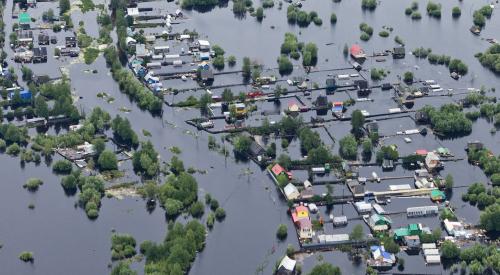One out of two ain't bad.
Florida home builders were almost giddy with delight early last month when the state's Republican-dominated legislature passed two landmark pieces of legislation:
Unfortunately, Republican Governor Jeb Bush vetoed the impact fee bill, even though, according to industry insiders, he supported it in concept as recently as last year. Still, Bush signed the unified building code bill, and that's good news - not just for Floridians, but for builders in all coastal and high-wind areas of the country.
After a decade of acrimonious debate, especially in the aftermath of 1992's Hurricane Andrew, Florida finally passed a unified building code that deals logically and even-handedly with the issues raised by that hurricane. It's likely to be a precedent-setter, scruti-nized by hurricane-prone states from Texas to Maine.
"It's not a perfect document, but we're confident that we now have a code that accomplishes at least three goals we hoped it would," says Florida Home Builders Association president Barry Rutenberg, a Gainesville builder (and also a major force in the National Association of Home Builders).
"One, it adds uniformity to the construction process, which should allow us to build more efficiently, especially those builders who work in multiple jurisdictions," says Rutenberg. "Two, it requires that the Florida Building Commission go back and apply a cost-effectiveness test to the over 386 amendments it made to the base code (the 1997 edition of the Stan-dard Building Code). And three, it opens the door to property insurance discounts for home owners, to off-set the increased costs associated with the new code."
The unified code also brings plumbing, mechani-cal, energy and gas codes into one document, and standardizes interpretations of the regulations. Homes built along the coast in 34 Florida counties will now be required to meet the window protection standards of ASCE 7-98 (developed by the American Society of Civil Engineers) wherever wind speeds exceed 120 miles per hour. Builders will have the option to engineer their homes to withstand internal pressures produced by such winds or protect the openings. In the Florida panhandle, these wind protection standards will now apply along the coast and to one mile inland. Only in South Florida's Dade and Broward Counties will all new homes continue to be subject to existing window protection standards (enacted locally since Hurricane Andrew) that mandate protected openings.
"This code should make compliance easier and assure that the homes we build are better prepared to withstand hurricane winds," says Barry Rutenberg.
The new code will take effect July 1, 2001, allowing time for all concerned parties to be informed about the new regulations. Prior to the code's implementation, the Florida Department of Community Affairs will oversee construction of 12 demonstration houses around the state that will show how to build to the new standards.
Property insurance companies will be required by June, 2002, to make rate filings with the Florida Department of Insurance, giving home owners credits or discounts that are actuarially reasonable, taking into account the increased protection against hurricane-force winds. "The requirement that insurers pass on cost savings to consumers was a priority for our association," says Rutenberg. "We want to assure that new homes are both safe and affordable."











